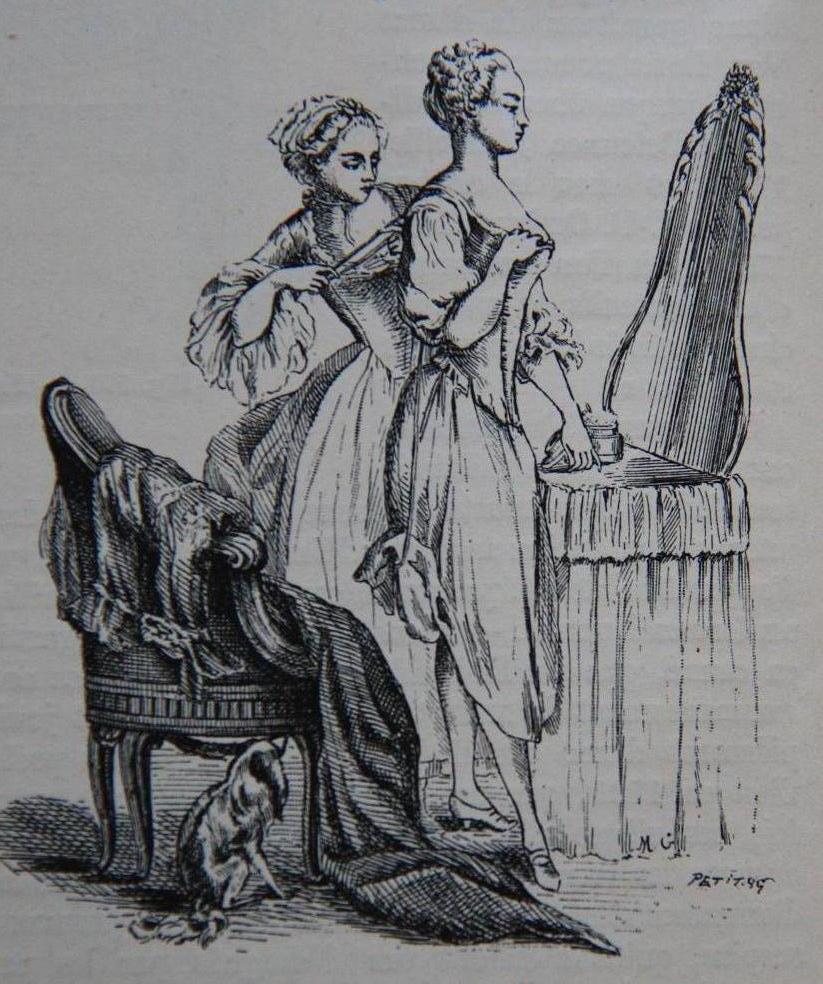
In the former Commonwealth, alcoholic beverages had many applications: they refreshed, cured various ailments, served as seasoning in the kitchen, quenched thirst and put feasters in good mood. However, wine, vodka and beer had yet another application in noble houses. They were often used as skin and hair care products. Jakub Kazimierz Haur describes a recipe according to which wine is very good for hair growth. You just mix it with mouse droppings and apply the mixture on bald patches. Your hair is certain to grow again.
Wine was also used in hair dyes. To produce black dye, you had to burn leech in red wine for two months. However, Polish women were considered much more beautiful, if they had blond hair. Herbal preparations were used to bleach hair. Greyness was removed using sage juice. In those times, the symbol of female beauty was impeccably white skin. Noblewomen avoided the sun and used countless mixtures that were supposed to guarantee snow white skin.
Stronger types of alcohol, including vodka, were also used in skin care. Compendium medicum auctumcontains a recipe for "English vodka for bright facial skin." To make the product, you had to burn sugar, camphor and white incense in an alembic. Such vodka was supposed to be "peculiar and certain." Another interesting recipe was vodka for skin and hair care. To make it: "take 2 pounds of liquid honey, 6 pounds of Gum Arabic, melt gum in water mixed with honey and burn in an alembic." The first vodka in the alembic was for facial skin care and the vodka obtained by the end of the process was for hair care - it was supposed to restore the colour of grey hair.
Such vodkas were sometimes abused, causing skin dehydration. Kulczycki warned against such cosmetics: "Avoid bleaches that do more than just purify and soften the skin, such as pure vodka or Hungarian vodka, or the like, as they cause facial skin tautness and wrinkles."
Haur also writes about the skin benefits of beer: "Mulled beer with carum or crushed fennel, drunk with butter in the morning, on an empty stomach and before going to bed, is good for dry, rosy and shiny female skin." There was also a recipe for suntanned skin: "Take rain water and unripe berry wine, three half-pints each, boil together until half of the liquid evaporates, refill the evaporated volume with lemon juice, remove from heat source, add four egg whites and leave to cool down."
Efforts to improve one's looks with the help of beauty products were sometimes criticised by moralists. Samuel Dambrowski, in his sermons from early 17th century, strongly criticises women for using cosmetics: "Oh, you unhappy women who colour your faces and eyebrows! Oh what a rebuke it is to the mighty Creator: these wretched women do none other than accuse God's unspeakable wisdom of foolishness: oh, you Christian ladies who are not afraid of God, do not spoil God's image, do not invent false beauty that deceives the modest and leads you to perdition." The preacher's rebukes, however, did not yield the expected effects; to the contrary, the Western fashion for beauty products found fertile ground among Polish noblewomen.
Translation: Lingua Lab
We would like to inform that for the purpose of optimisation of content available on our website and its customisation according to your needs, we use information stored by means of cookies on the Users' end devices. You can control cookies by means of your Internet browser settings. Further use of our website without change of the browser settings means that you accept the use of cookies. For more information on cookies used by us and to feel comfortable about this subject, please familiarise yourselves with our Privacy Policy.
✓ I understand